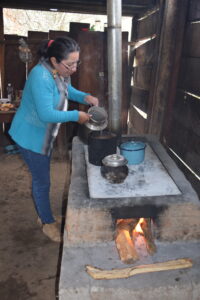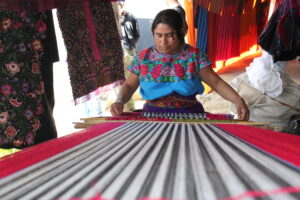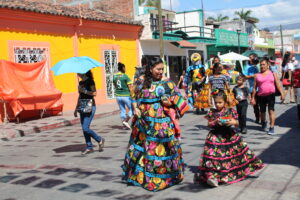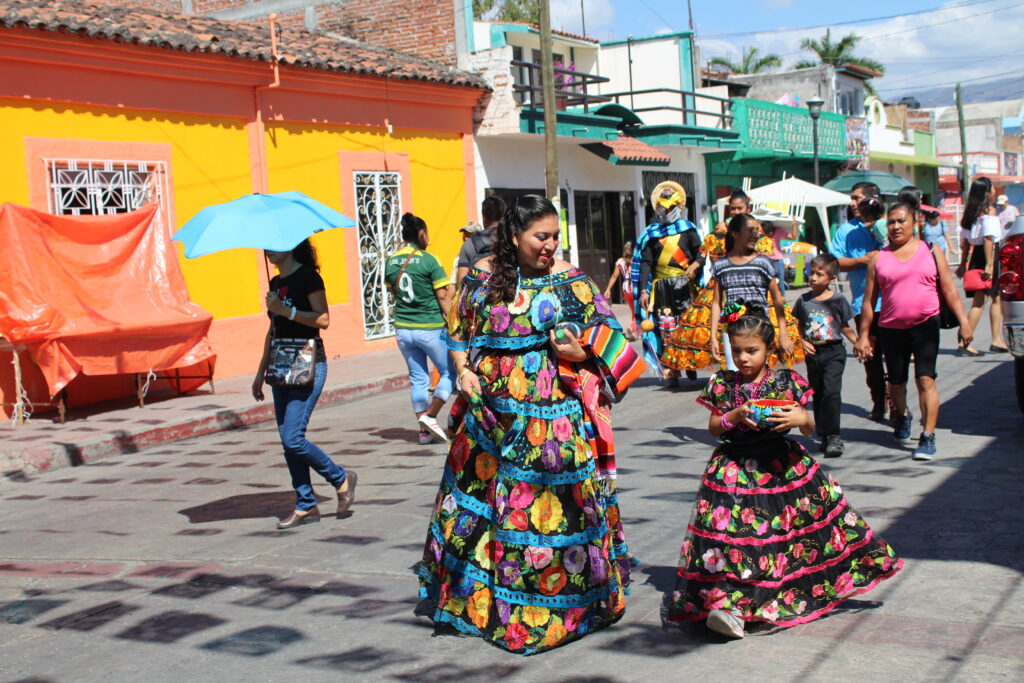We can be kind
Elena Huegel serves with the Intercultural Research and Studies Institute (INESIN) in Mexico.
“Do not use harmful words, but only helpful words, the kind that builds up and provides what is needed, so that what you say will do good to those who hear you. And do not make God’s Holy Spirit sad; for the Spirit is God’s mark of ownership on you, a guarantee that the Day will come when God will set you free. Get rid of all bitterness, passion, and anger. No more shouting or insults, no more hateful feelings of any sort. Instead, be kind
and tender-hearted to one another, and forgive one another, as God has forgiven you through Christ.” Ephesians 4:29-32 (GNT)
ES MUY AMABLE
“Es muy amable.” “He/she is very kind.” When I talk to my friends in Chiapas, this is the phrase they often use when speaking appreciatively of someone. “Amable” means two things in Spanish. It means to treat others in a pleasant, courteous, gentle, and respectful way, but it also means to be worthy of being loved or lovable. The root of the word “amable” is the same as the root for “amor” or love.
A KIND PERSON IS WELL TAUGHT

I asked Male, a Tzotzil Mayan friend who co-facilitates activities at the Institute for Intercultural Study and Research (INESIN), if the value of kindness or “amabilidad” had some equivalent in her culture and language, and if she had any idea why it is so important for people in Chiapas. She smiled and explained. “It is important for us to be known as ‘one with a good heart.’ Over the centuries, many people have come to our lands and have mistreated us, looked down on our way of life, and attacked our dignity. Perhaps it is because people have often not been kind that we so appreciate someone who is. To be “amable” is a sign that you have been well taught by your parents, family, and community. It means you know how to live rightly with others.”
Male explained further: “When we meet someone and they are not kind, we do not trust, and the relationship is thwarted. But little by little, if a person we meet confirms their first kindness in all of the areas of life, then trust grows. Once we know a person well and they have proven that they are kind and of good heart, then we say that the heart of this person is very kind or doubly kind, yu’un k’ak lek awo’tan, then this person has earned a special place in the heart of the community.”
DEFENSE OF KINDNESS
When I am preparing to come to the US to share with churches, I spend considerable time praying and meditating on what I should speak about. Kindness kept popping into view in different ways and from different sources. Recently, the Chalice Press book Defense of Kindness: why it matters, how it changes our lives, and how it can save the world by Bruce Reyes/Chow showed up in an email. A quote from this book caught my attention.
“Kindness is not just the absence of being mean or hateful. Being kind entails actively resisting actions, ideas, and institutions that rob others of dignity.”
Reyes-Chow says the same thing that my Mayan friends have said: Kindness is how we daily practice nurturing and defending dignity, both our own and that of others. As Reyes –Chow reminds us:“Let’s not confuse conflict avoiding niceness with dignity seeking kindness.”
One of the greatest honors I have received in the past four years has been to be pronounced a kind person by my Mayan friends.
MEXICO´S CULTURE OF KINDNESS

In Mexico, we are bombarded with negative news and we struggle to maintain the tradition and culture of kindness in the midst of stories of violence, injustice, and despair, which too often touch our lives directly or indirectly. Many of these stories make it into the international news. I am sure, however, that you didn´t hear about the campaign in my neighborhood to plant trees and care for a nearby forest reserve that is important in replenishing the aquifer. I’m sure you also didn’t hear about the nationwide “Day without women” protest to highlight the violence against women and uplift their dignity. In spite of so many pressures to be the place which is projected in the news – a nation of violence, corruption, and fear – in Chiapas and most of Mexico, one does not need to dig too deep to find the tradition of hospitality and a culture of kindness.
KINDNESS IS A FACTOR OF RESILIENCE
I have come to see kindness as a factor of resilience. The capacity to be kind to others, even when one feels bad or is mistreated, lifts us and gives us energy. It is a way to protect our dignity and the dignity of others, even when we or they don’t seem to deserve it. Kindness helps us to stay in control of our own behavior and empowers our capacity to determine how we will act. Recovering the culture of kindness could become a social revolution that counters the exaltation of self-centeredness and extreme individualism. Kindness towards friends and strangers allows us to nurture our inner lives and makes relationships blossom. It can change our families and communities. As Reyes Chow says: To be kind is to remember that each interaction we have with another person, be it face-to-face conversations or social network commentary, matters and makes a difference.
NURTURING COMMUNITY

One of Global Ministries’ Strategic Directions is nurturing community. The Mayans would say that kindness is key to deepening community connections. When I think of kindness on a community level, I remember the siblings of Juchitán, a city in southern Mexico devastated by the 2017 earthquakes. Shortly after losing everything to the earthquakes, and while still living in tents, they prepared hot meals for the migrant caravans that passed on the highway just outside the city. These siblings explained to me, “We know how it feels to lose everything and to desire something better for one’s family.” In the midst of their own need, they did not forget to be kind to strangers.
Our Mayan partners invite us to join them in the commitment to share in small daily acts of kindness. Kindness that uplifts and upholds our dignity and the dignity of others in small and life-changing ways is the way to share in God’s abundant life.
Elena Huegel serves with the ele (INESIN) in Mexico. Her appointment is made possible by your gifts to Disciples Mission Fund, Our Church’s Wider Mission, and your special gifts.

